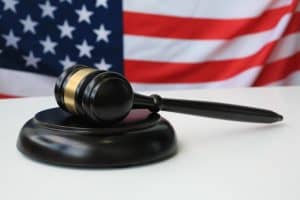Lately, there has been a lot of talk about clergy abuse in communities, and its harmful effects on people’s lives are evident to everyone involved in these situations. These religious organizations that are usually seen as upholders of ethics are now under scrutiny for how they deal with these issues.

It is crucial to take a good approach to accountability for damages in clergy sexual abuse lawsuits while also being sensitive to sensitivities and providing justice for the victims. This article delves into ways to make sure that these institutions are held accountable and create a space for those who worship there.
Grasping the Issue
Sexual misconduct by religious leaders is a breach of trust that leaves lasting emotional wounds on survivors who struggle with feelings of guilt and shame for years to come. This harmful behavior is not exclusive to any religion or group. It can be found across different faith-based communities. Recognizing the nature of this issue is essential for tackling it. By acknowledging the extent of abuse happening within communities, people can unite in calling for reforms and justice.
Navigating the System
Taking action is important for holding individuals and institutions accountable when it comes to seeking justice for survivors of abuse or violence through both criminal processes. Different countries have laws that limit the time frame within which a victim can sue someone. Supporters advocate for changes in legislation that would allow survivors to seek justice whenever they feel prepared to do so. Systems need to address the obstacles that survivors encounter, guaranteeing fair trials and suitable sentencing.
Promoting Openness and Honesty
Transparency is crucial in organizations as concealing abuse cases to protect their image has been a practice in the past to the detriment of victims’ welfare and justice. It is important to promote an environment where issues of misconduct are openly acknowledged and addressed. Unbiased independent review boards play a role in handling complaints by offering fair evaluations that build trust and uphold accountability standards.
Engagement With the Community
Communities are essential in holding others accountable for their actions by working to bring attention to issues and provide assistance to those who have been affected by clergy abuse. Support groups and advocacy organizations play a crucial role in this effort by raising awareness and offering support to survivors who have been through difficult experiences. Engaging community members in conversations about clergy abuse can help break the silence and remove any shame associated with these discussions. Promoting open dialogue creates a safe space for survivors to share their stories and seek the help they need.
Conducting Training Sessions
Institutions need to create guidelines to deter any form of misuse or misconduct within their premises and among their personnel members, such as clergy and staff members. If proper training is given to these individuals regularly, it can help cultivate an atmosphere of trust and security. Informative sessions for the congregation on behavior norms and limits play a role in nurturing a secure atmosphere within the institution. Consistent participation in workshops and seminars can help institutions uphold these guidelines effectively in their day-to-day operations, hence decreasing the chances of any behavior occurrences.
Standing by Those Who Have Overcome Challenges
Supporting survivors is crucially important as many people often feel alone following experiences due to concerns about being judged or not believing in their stories of abuse. Therefore, providing counseling and support groups can help them in their recovery process. Religious organizations need to focus on establishing an atmosphere that shows concern for individuals impacted by abuse. Recognizing the bravery required to speak out can encourage others to open up and share their narratives, leading to the creation of a community for healing.
Working Together With the Authorities
Collaboration is key between institutions and law enforcement agencies to tackle abuse by having clear reporting guidelines in place for prompt action when needed.Institutions should fully assist investigations by sharing all information with authorities. This collaboration boosts institutions’ reputations and shows their dedication to upholding justice and responsibility.
In Summary
Ensuring that religious organizations are responsible for addressing clergy misconduct demands a strategy involving assessing the extent of the issue and taking legal measures while promoting openness within communities to seek fairness and accountability. Support for survivors and cooperation with law enforcement play roles in this effort, as does increasing public awareness about the issue. Collaborative efforts toward reform led by community engagement can pave the way for an environment for worshipers collectively striving towards harmonizing faith and security in society.

